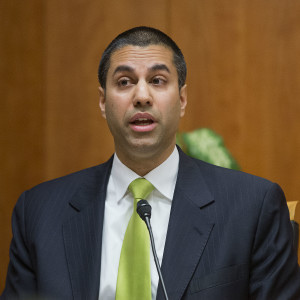The Federal Communications Commission has released its latest annual report on competition in the mobile marketplace, and its findings — or lack thereof — left wireless carriers and commissioners themselves displeased with the results and anticipating more FCC regulation.
In the agency’s 18th Annual Report of Competitive Market Conditions for Commercial Mobile Wireless, the FCC — similar to several previous reports in a row — stepped back from making any clear declarations about the market’s competitive state, and explained the growing variety of consumer options and subsequent complexity of the market made definitive conclusions elusive.
“Consistent with the commission’s first seven reports, and the 14th report and subsequent reports, this 18th report does not reach an overall conclusion or formal finding regarding whether or not the CMRS [Commercial Mobile Radio Services] marketplace was effectively competitive, but rather it provides an analysis and description of the CMRS industry’s competitive metrics and trends,” the report reads.
That includes market share, subscribership growth, company financials, increased network coverage and new technologies since the last report, the current spread of spectrum and infrastructure, new pricing plans offered by providers (such as zero term contracts and handset subsidies), carriers’ coverage, service quality and speed, and “the downstream mobile wireless ecosystem,” including consumer access to information.
Despite the wide array of factors examined by the agency, the FCC made few definitive conclusions.
“Given the complexity of the various interrelated segments and services within the mobile wireless ecosystem, any single conclusion regarding the effectiveness of competition would be incomplete and possibly misleading in light of the complexities we observe.”
Spectrum was one of the few areas the report provides definitive analysis on, concluding carriers are in need of more airwaves to satisfy the growing consumer demand for high-bandwidth mobile services like video streaming. The Wireless Telecommunications Bureau, charged with drafting the report, said it has plans in place to meet that need through next year’s incentive auction, when broadcasters will put up spectrum for bidding by mobile providers.
“[T]he commission is making more spectrum available to existing mobile service providers and potential new entrants through competitive bidding, such as in the upcoming incentive auction and promoting innovative new approaches,” the report reads. “The commission’s policies have been guided by the goal of promoting and preserving competition, which in turn has facilitated the ability of consumers to make choices among numerous service providers and leads to lower prices, improved quality, and increased innovation.”
Not everyone at the FCC agrees, including Republican commissioners Ajit Pai and Michael O’Rielly, who painted the report’s lack of a conclusive stance on competition as an excuse for the agency to keep an unnecessarily heavy regulatory hand over the marketplace.
“This FCC will never find that there is effective competition in the wireless market, regardless of what the facts show,” Pai said in a statement. “That’s because doing so would undermine the agency’s goal of expanding its authority to manipulate the wireless market — a goal it can’t accomplish if it deems that market healthy.”
“[T]he statute states that the report must contain ‘an analysis of whether or not there is effective competition,'” O’Rielly said of the FCC’s congressional mandate to draft the report. “It amazes me that with more than 90 percent of Americans having a choice of four or more wireless providers that we are incapable of concluding, as directed by Congress, whether this industry is competitive.”
Industry players agreed, and pointed out past commissions had already deemed the market competitive in 2007 and 2008 under FCC Chairman Kevin Martin.
“Once again, the FCC’s competition report has been inspired more by the remembrance of things past, rather than the real-world record,” Mobile Future, whose membership includes AT&T, Verizon, and Qualcomm, said in a statement following the report’s release.
“Like something out of Marcel Proust, the more things change in our dynamic mobile marketplace, the more the FCC’s analysis stays the same. It’s unfortunate that the FCC chooses not to recognize what millions of American mobile users see every day — our nation’s ever-changing wireless sector, fueled by $32 billion in annual investment, and endless choice of services, plans, carriers and devices, is the global gold standard of competition.”
Others said the report rightly flags problems in the market. The Competitive Carrier’s Association, which represents smaller providers, said the report highlights the presence of a duopoly in the U.S. wireless market dominated by AT&T and Verizon.
“The report affirms an alarming trend of continued consolidation into the hands of the two dominant carriers measured by any metric, including HHI [Herfindahl-Hirschman Indexes], amount of low-band spectrum, wireless revenues, or connections, to name a few,” CCA said in a statement. “The FCC must do everything possible to ensure a successful auction outcome that puts low-band spectrum into the hands of competitive carriers as soon as possible which will promote lasting competition and benefit consumers across the country.”

